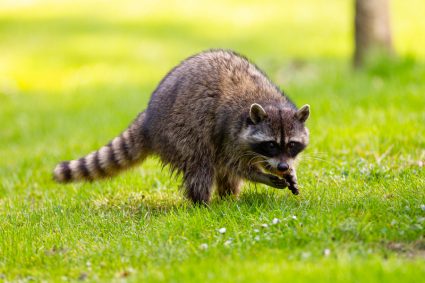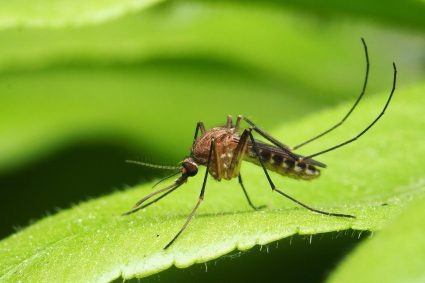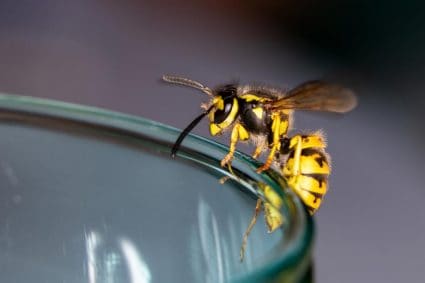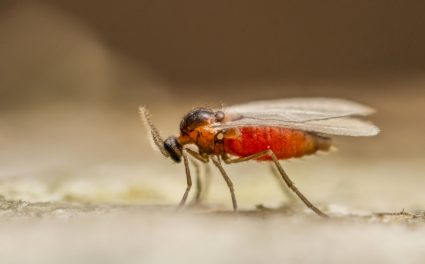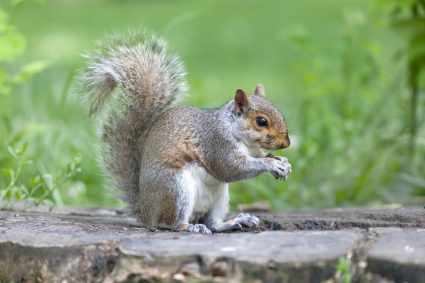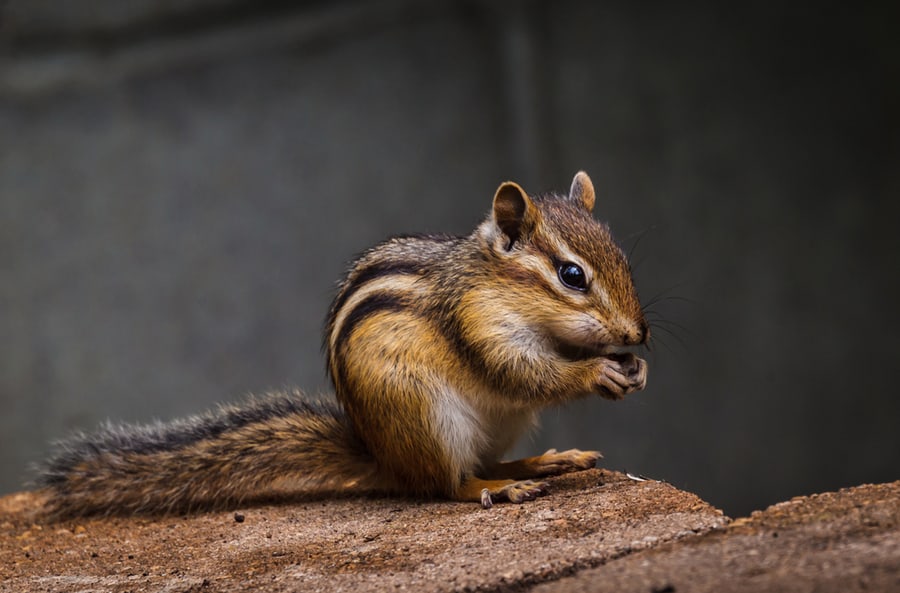
Chipmunks are tiny and cute animals with fluffy cheeks and big eyes. But don’t get fooled. These animals can also be pesky pests that can destroy your house and act aggressively to defend and protect themselves.
They may be small, but they can become most homeowners’ worst nightmare.
But you’re smarter. And you must understand how chipmunks behave so that you know what to do in case of an infestation.
Because chipmunks are like us, they can also get frightened for several reasons.
While chipmunks are exceptional diggers with flexible bodies that can enter any hole, you can also scare them away by knowing what they are most scared about.
Frightening them away can help protect your garden, especially your home-grown plants. That’s why it’s essential that you know the basic details about chipmunks, including the following:
- Chipmunks fear their predators.
- They will also avoid spices and essential oils with intense and pungent smells.
- Chipmunks also despise urine.
- They are not fond of coffee grounds and fruit gums.
- Water is also one of these chipmunks’ enemies.
When chipmunks encounter what they hate, you can guarantee they will try their best to escape and find another potential hiding spot where they can thrive.
Read this guide if you’ve been dying to find out how to repel chipmunks and prevent them from invading your garden.
We’ll cover everything you should know about what they hate and how they behave when they encounter one.
5 Things Chipmunks Hate the Most
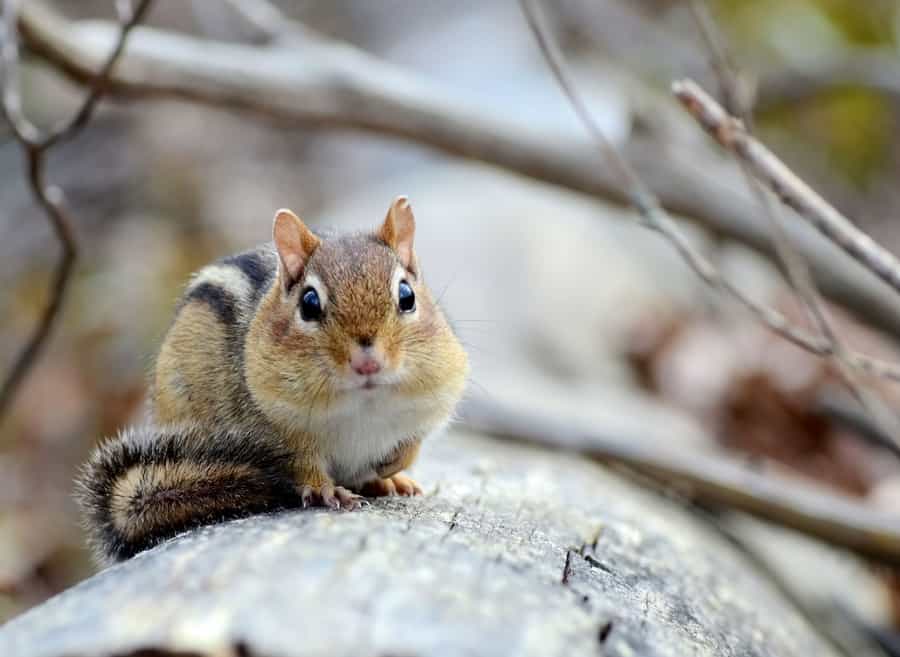
Finding out what chipmunks hate can help you find ways to keep them away from your garden.
But this can also be your guide when you take one as a pet.
Here are five of the most common things chipmunks despise the most:
1. Their Predators
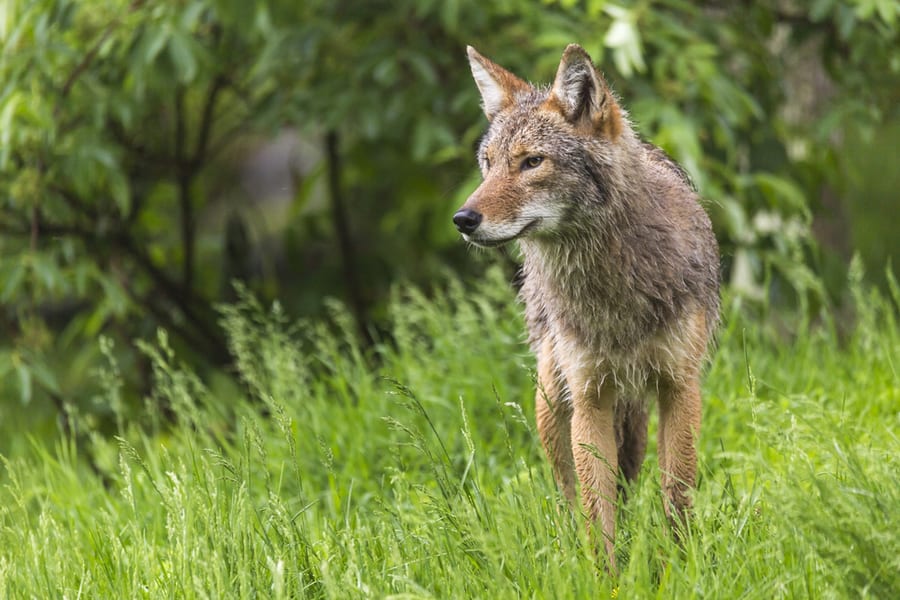
Like any small animal, chipmunks certainly hate their predators. And aside from hatred, these animals are genuinely scared of bigger species that are always out to get them.
Some of the chipmunks’ most common predators include mammals like foxes, coyotes, and wolves. But birds like owls or hawks are also fond of eating these tiny creatures. Depending on the type of snake, they can also be aggressive toward chipmunks.
Because of these predators, chipmunks have invented a unique way of communicating among themselves. This serves as a way for these animals to warn one another when predators are near.
Or they can also communicate with each other when a treat or a potential food source is in the air or on the ground.
Most homeowners have also used their predators to their advantage. They would often display makeshift or fake owls or hawks in their gardens to make the chipmunks think there were predators around.
In that way, these tiny animals will avoid the area, which allows you to protect your space.
2. Pungent Smells, Essential Oils, and Certain Garden Plants
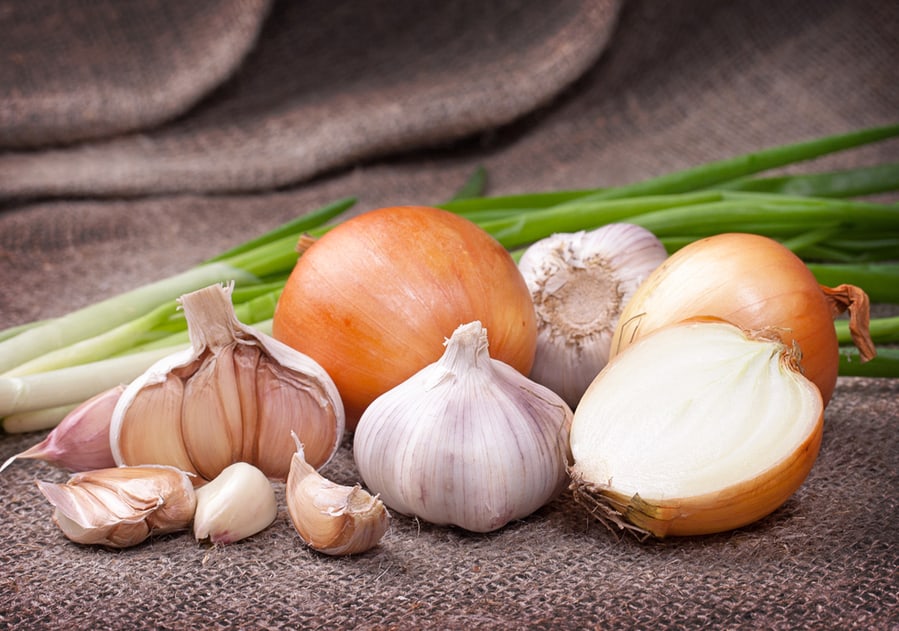
One interesting thing about chipmunks is their sensitive sense of smell. It’s the main reason you’ll see them avoiding areas with pungent smells of spices, plants, and essential oils.
Chipmunks hate the smell of common spices you use in your kitchen, including garlic, onion, cayenne, and pepper. Most homeowners use these spices as natural repellents and sprinkle them in areas commonly visited by chipmunks.
It’s also a great idea to choose one spice, mix it with water, and place it inside a spray bottle. This makes it easier for you to apply to your plants or other areas in your garden. But it would be best if you were committed and accomplished this regularly, especially when the weather is hot and humid.
Aside from spices, chipmunks also despise essential oils. You can create a peppermint oil solution by mixing a few drops of essential oil with water and pouring it into a spray bottle.
The solution is safe to spray on plant leaves in your garden or any area that can turn into a breeding ground for chipmunks.
There are also a few garden plants that chipmunks despise, including the following:
- Marigolds: aromatic leaves with terpenes that chipmunks hate
- Cinnamon: the strong smell that can also keep squirrels away from your yard
- Daffodils: contain licorice that can irritate chipmunks
- Hyacinth: one of the few flower beds chipmunks don’t prefer and try to avoid
- Onions: comes with a potent smell, which chipmunks are not attracted to
3. Foul-Smelling Urine
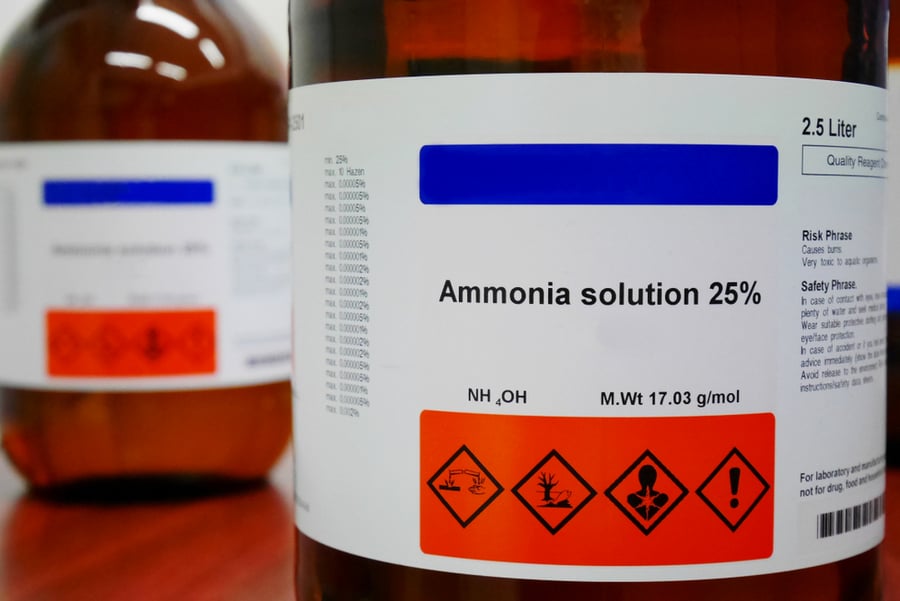
We’ve talked about how chipmunks hate anything with pungent smells, especially spices, essential oils, and garden plants.
You should also know that they are not attracted to human urine. The foul and intense smell of ammonia will cause them to escape and run away.
Urine is also a common solution to invading chipmunks because you can mix it with water and spray it on involved areas. Others prefer soaking rags with ammonia-smelling urine and spreading them across your yard.
4. Coffee Grounds and Fruit Gums
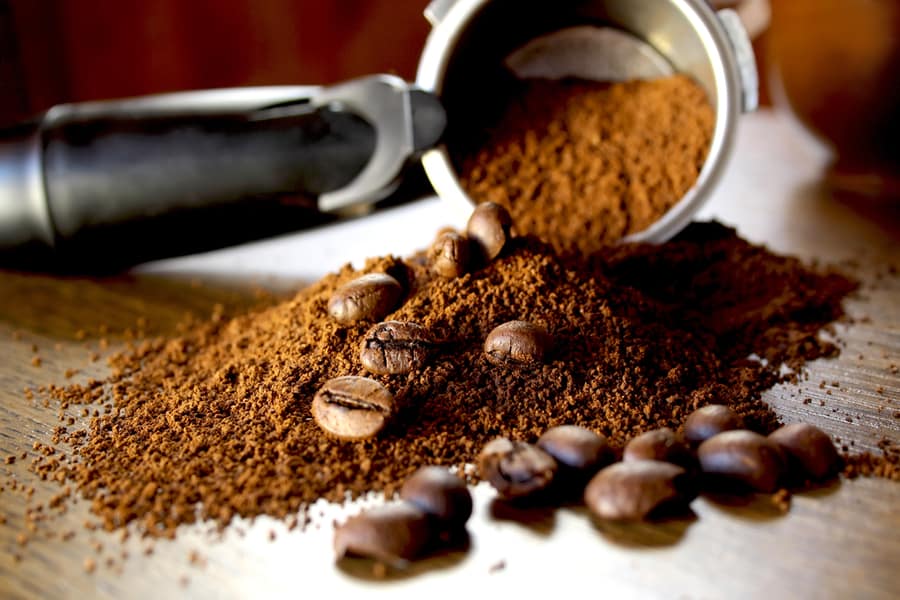
If you’re a coffee addict who loves brewing your coffee grounds at home, recycling these and using them to keep chipmunks away is possible.
These tiny animals, like raccoons, rodents, and other pests, don’t like the smell of bitter caffeine. They will always run away and look for a new hiding spot once you sprinkle some coffee grounds in your front yard.
It’s a win-win situation when you reuse coffee grounds. Aside from deterring pests, you can also use them as fertilizers for your garden soil.
And then we have fruit gums. You may like the taste, but chipmunks despise how they smell. Most homeowners also place fruit gums pieces on the animals’ burrows to make them feel irritated so they will escape.
5. Plain Old Water
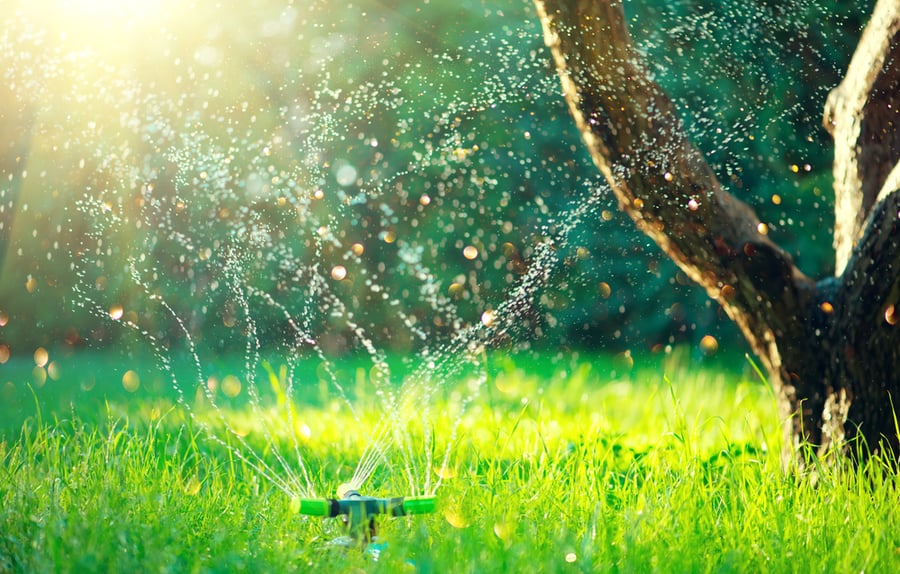
It’s safe to say that chipmunks are hydrophobic. They are not fond of anything wet or moist and especially hate thunderstorms!
Chipmunks don’t know how to swim and will likely drown when there’s a flood.
If you’re lucky enough for your garden to have a sprinkler system, you can send these tiny animals away. But the downside is it’s only a short-term solution.
What Chipmunks Do When They Are Aggravated
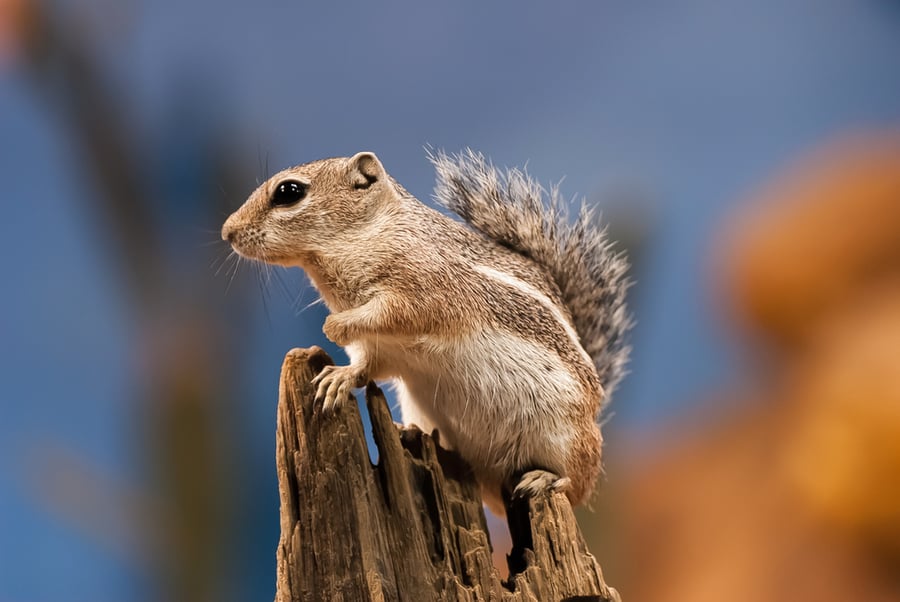
Now that you know what these animals hate, maybe you’re wondering how they respond when they encounter something uncomfortable. We’re here to help. Because chipmunks can instantly react, they have their mannerisms as protection and defense mechanisms.
One of the most common behaviors of chipmunks is making repeated loud and chirping noises. These serve as signals that alert other chipmunks that danger is near.
But the noises are also a way for these animals to aggravate and irritate their predators, causing the bigger animals to stay away.
Aside from noises, chipmunks also love burrowing to evade danger. They are used to hibernating and hiding underground to avoid predators.
Chipmunks are also smart animals. When they know danger is near, they will carry less food than normal and immediately return to their homes underground.
They also tend to take the easier route going home so that it takes less time for them to reach their hiding spots.
And finally, chipmunks can run as fast as a cheetah when they sense predators are near. Within a leap of a second, chipmunks are back in their hiding spots in no time.
Also, because they are small, they can easily run away and hide behind tall grasses or overgrown bushes.
Use What Chipmunks Hate to Your Advantage
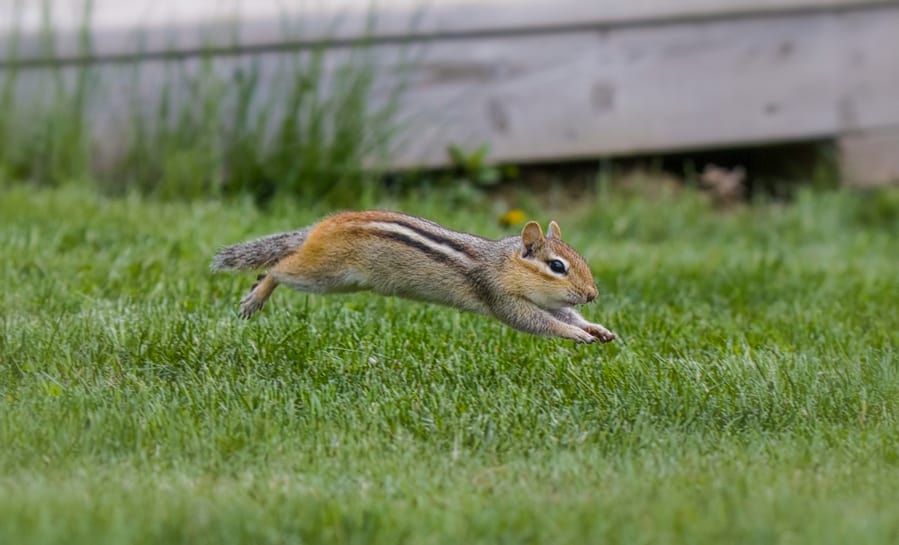
As much as chipmunks are quick to find food and potentially disturb your garden, they also have smells, plants, or animals they cannot stand.
And when they encounter one, they are not fond of chipmunks and are quick to run, escape, and return to their hiding spot. Or they can also find a new place to thrive and burrow into.
Nevertheless, it would be best if you also remembered that chipmunks are smart animals who have found a way to communicate with one another to protect their own.
Frequently Asked Questions
Can Chipmunks Stand the Scent of Vinegar?
Vinegar, especially apple cider vinegar, has an intense sour scent that chipmunks cannot stand.
Spray your garden; you can guarantee most pests won’t return to your place for a while. Plus, it’s safe to spray vinegar directly on your plants’ leaves and flowers.
Why Are Ultrasonic Devices Effective Against Chipmunks?
Like chipmunks have a sensitive sense of smell, they are also not fond of vibrations or loud sounds, which you’ll find in most ultrasonic devices.
These tools ensure no chipmunks, squirrels, raccoons, or other pests will go near your home’s perimeter. The vibrations they emit are just too loud and disturbing for these animals.


